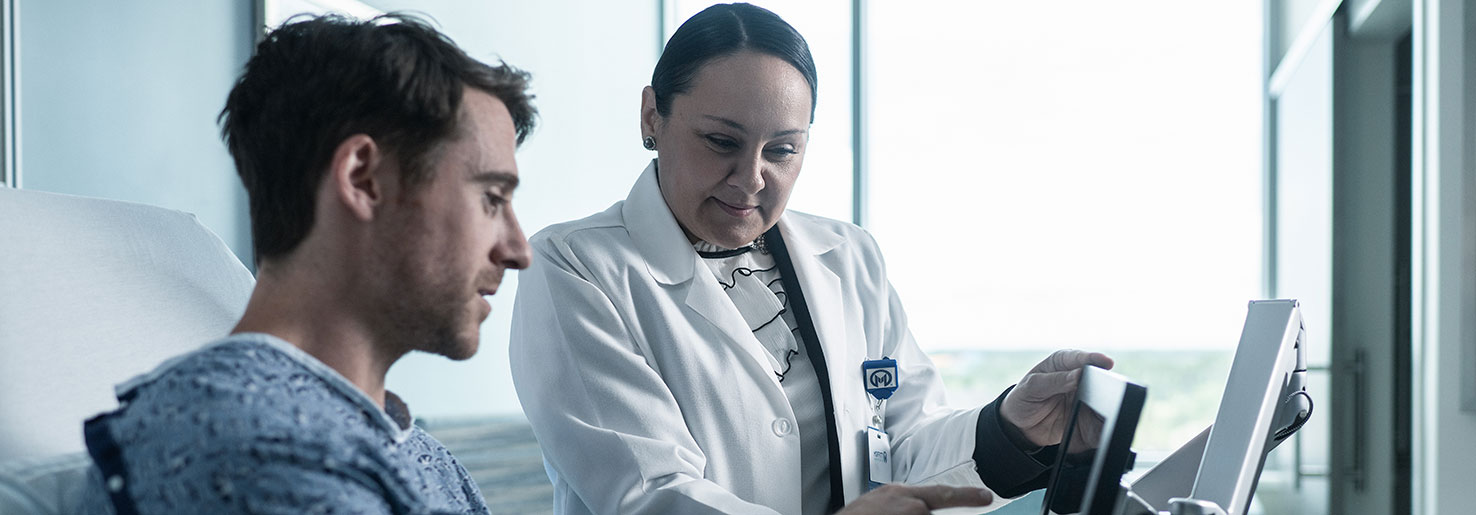
Neurological Complications and Treatment Options from Immunotherapy Side Effects
Immunotherapy has emerged as a promising novel treatment option for cancer care. Using the natural power of the body’s disease-fighting immune system, immunotherapy helps defend against further cancer growth by enhancing how the immune system works so it can target and destroy cancerous cells.
Cellular Immunotherapy: Potential Neurological Complications
The peripheral and central nervous systems (CNS) are sometimes affected by immunotherapy, though it is much rarer for the central nervous system to be impacted.
A common type of immunotherapy, immune checkpoint inhibitors, helps the immune system better recognize and destroy cancer cells that may be disguised as healthy cells in order to trick the immune system. However, this can cause the immune system to accidentally attack healthy cells as well, leading to potential neurological side effects. Though a relatively low percentage of patients experience these, potential nervous system-impacting side effects include:
- Muscle pain and weakness
- Numbness and tingling
- Trouble breathing
- Headache
- Confusion
- Fever
- Difficulties with balance
- Seizures
- Vision loss
Other neurological deficits patients undergoing cellular immunotherapy may experience include radiculopathies, neuropathies, myopathies, myasthenic syndromes and CNS complications. Here are common examples, along with their estimated percentage of occurrence among patients treated with immune checkpoint inhibitors (ICI):
Central Nervous System Complications
- Encephalitis: 0.86%
- Meningitis: 0.38%
- Hypophysitis: 1%
- Demyelination disorders: 0.016%
Peripheral Nervous System Complications
Additionally, 18–100% of patients undergoing chimeric antigen receptor T-cell (CAR-T) therapy, another type of immunotherapy, may develop cytokine release syndrome (CRS) that usually occurs within 48 hours of infusion. There is also a 20-70% risk of neurological complications five to seven days after infusion of this therapy, for which patients are closely monitored in the inpatient setting.
Therapeutic Measures to Avoid Neurological Complications
Neurological complications can be avoided by using strict criteria during patient selection for immunotherapies, closely monitoring patients and using proven therapeutical measures to treat adverse events.
Certain patients may be predisposed to neurological complications or have a family history that indicates they wouldn’t be the right fit for immunotherapy. By screening and evaluating patients carefully, our team of cancer experts can ensure that each patient has access to the therapies that will provide the most favorable outcome.
Once patients are selected and undergoing immunotherapy, our multidisciplinary team closely monitors them, a step that is key for early recognition of related neurological reactions. We continually review each patient’s response to their treatment, potentially revising treatment plans as necessary.
For mild symptoms, holding on to treatment and waiting for symptoms to resolve can be effective, while moderate symptoms typically respond well to oral or intravenous corticosteroids or immunoglobulins.
The use of these therapeutic measures is essential to avoid residual neurological deficits. At Moffitt, our Neuro-Oncology Department plays a significant role, offering exceptional insight into the neurological side effects of cancers and cancer treatments. With our collaborative cross-departmental approach and knowledge, Moffitt’s multidisciplinary team of cancer experts provides extremely specialized treatment for these adverse events.
We are committed to providing outstanding cancer care, working collaboratively with referring providers to ensure each patient has the best possible outcomes.
If you would like to refer a patient to Moffitt Cancer Center, complete our online form or contact a physician liaison for assistance. As part of our efforts to shorten referral times as much as possible, online referrals are typically responded to within 24 - 48 hours.

